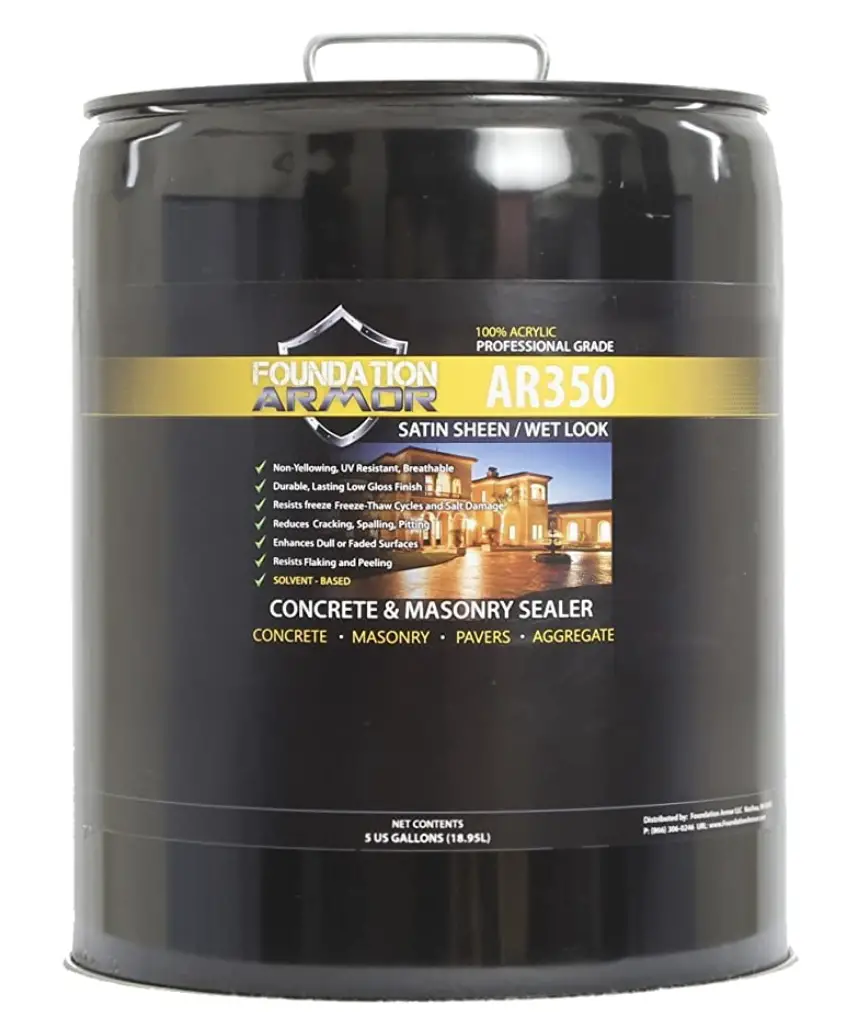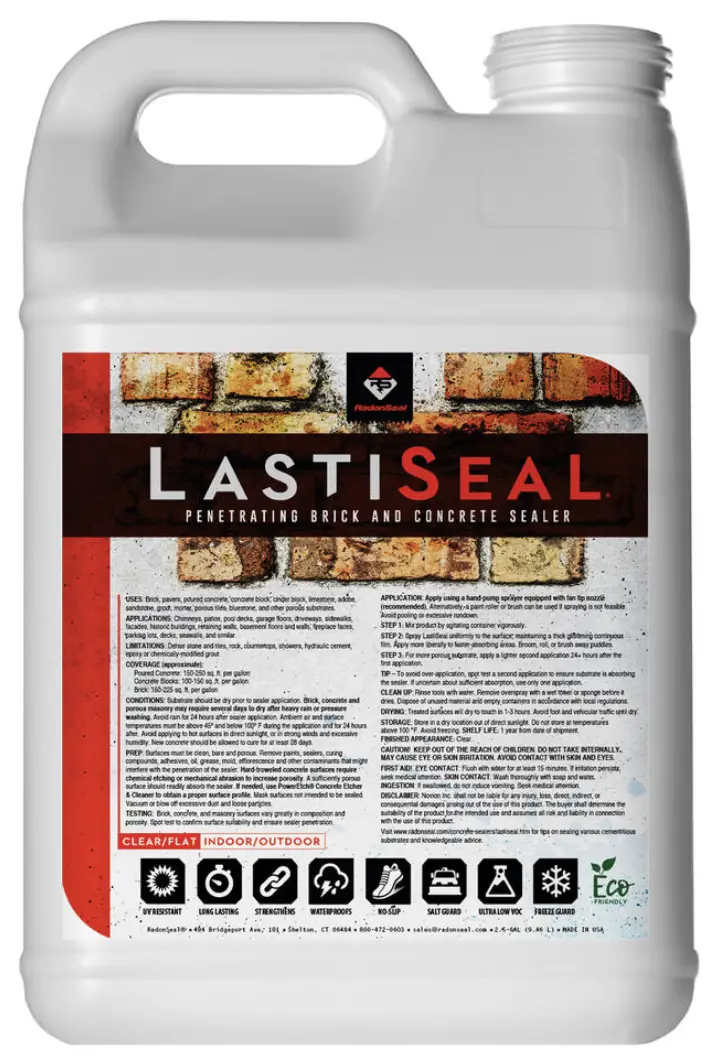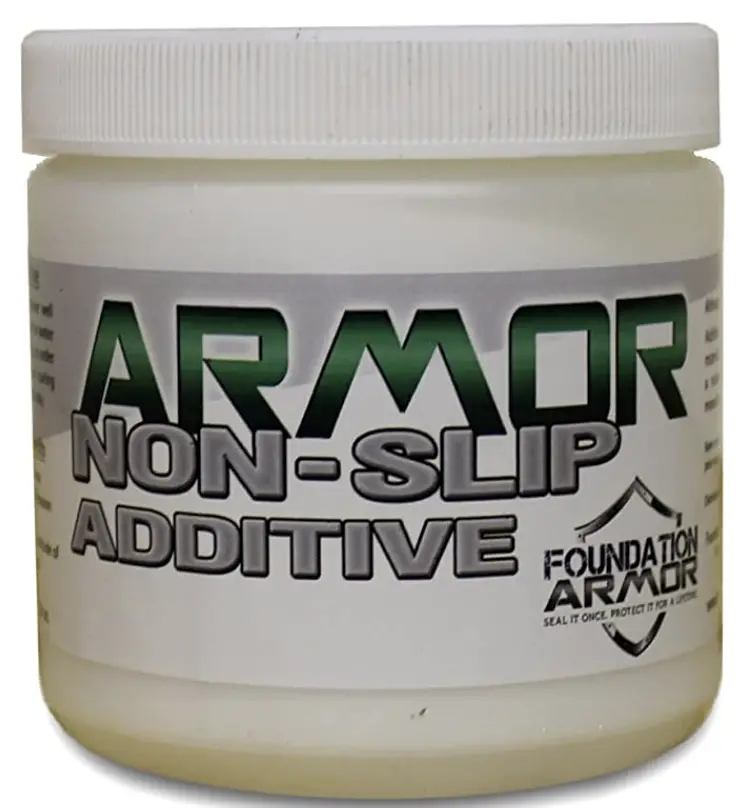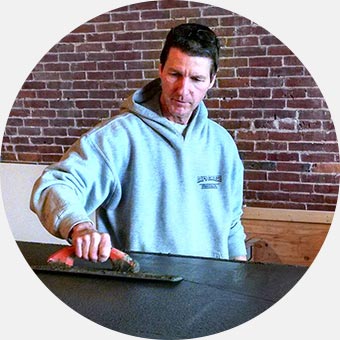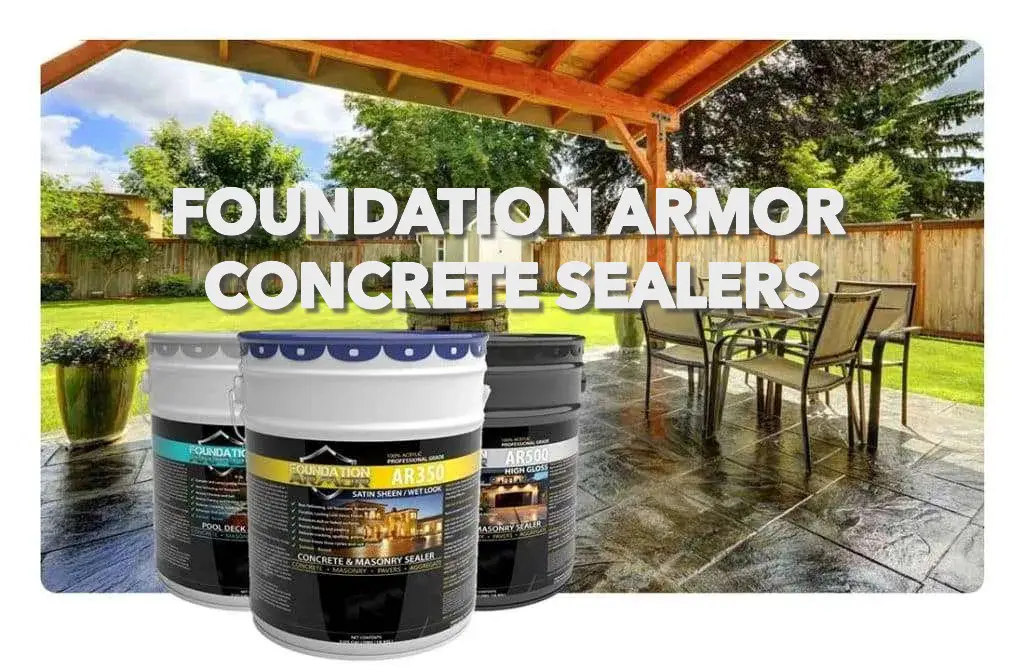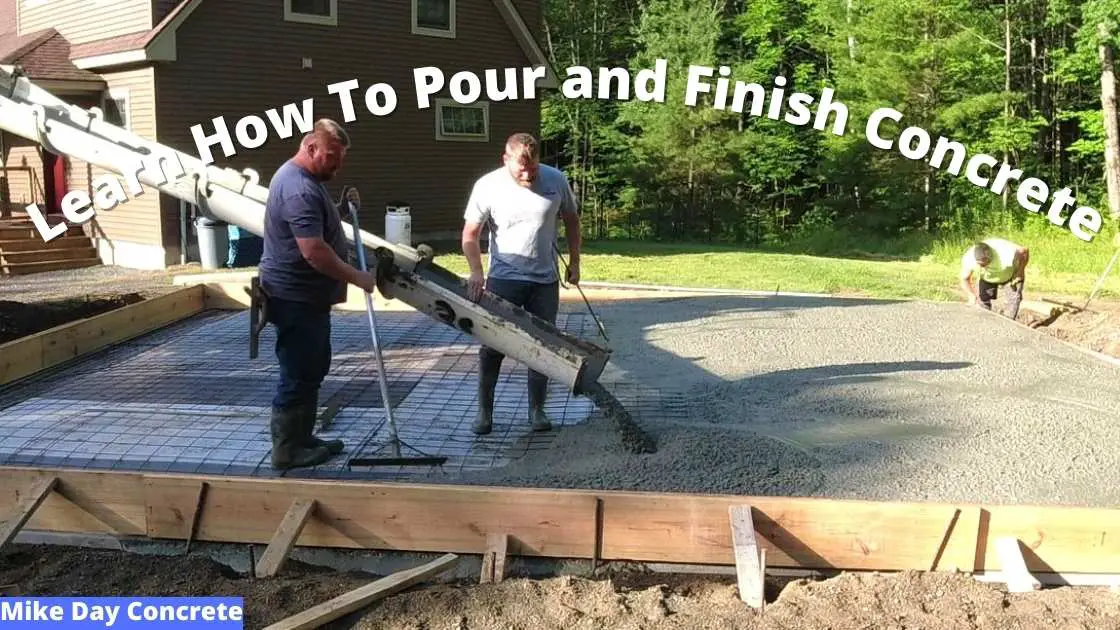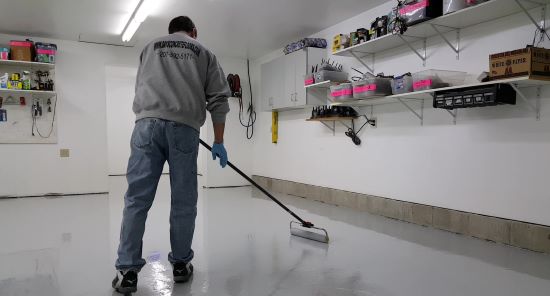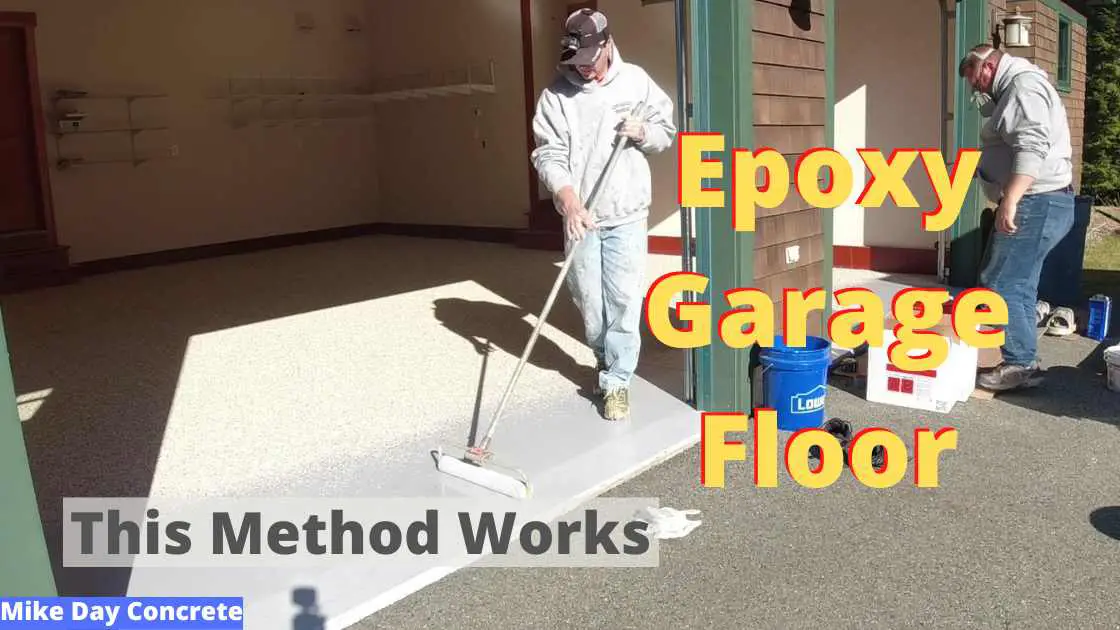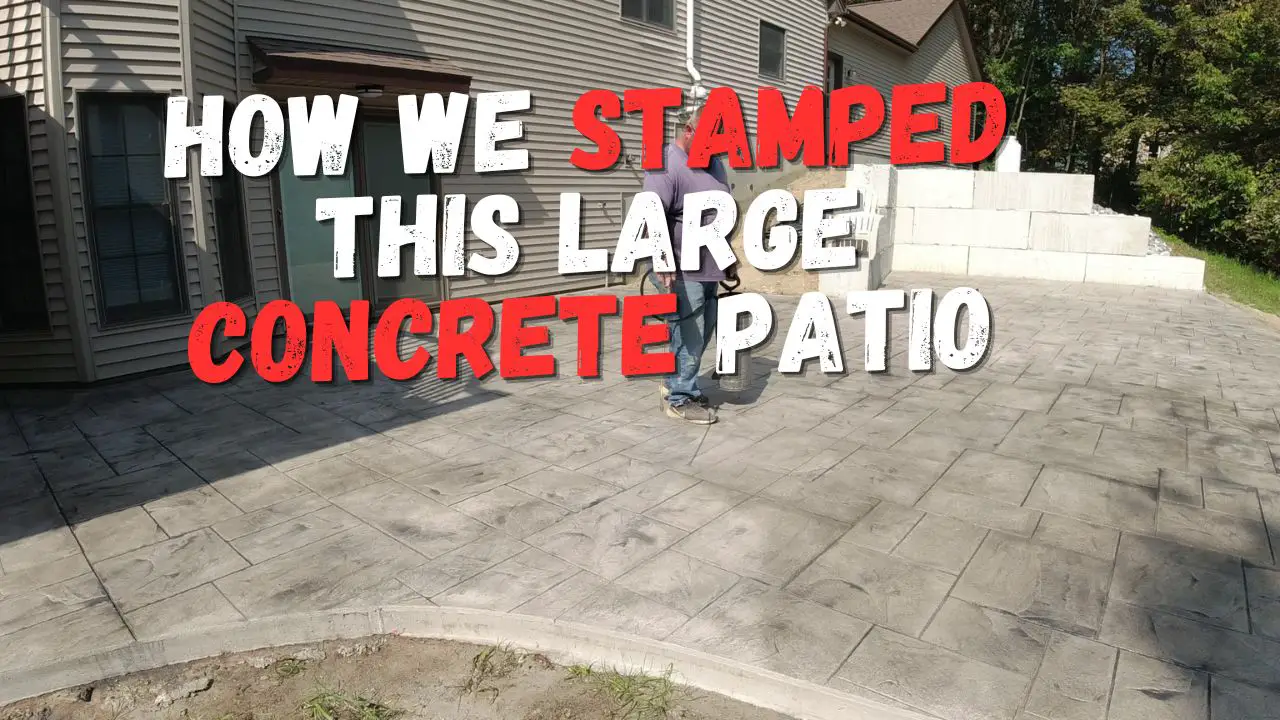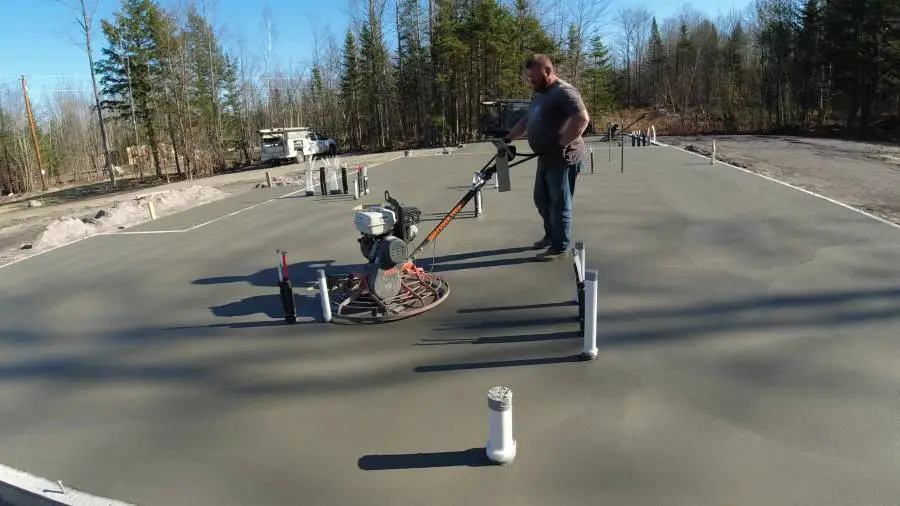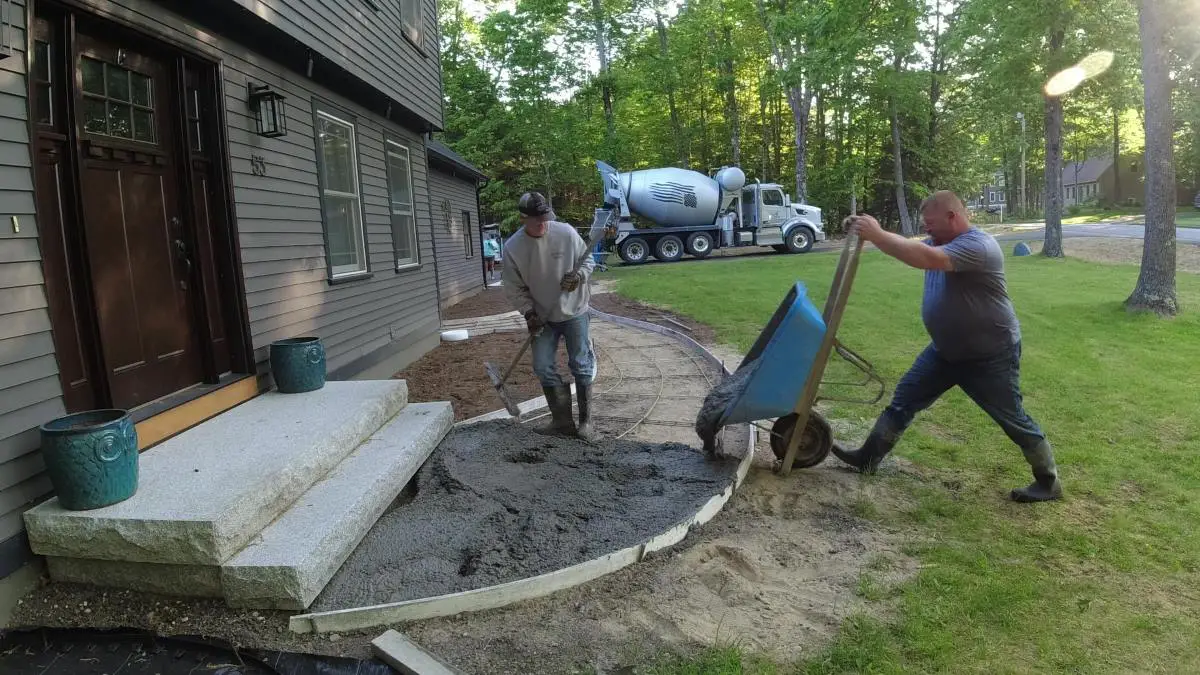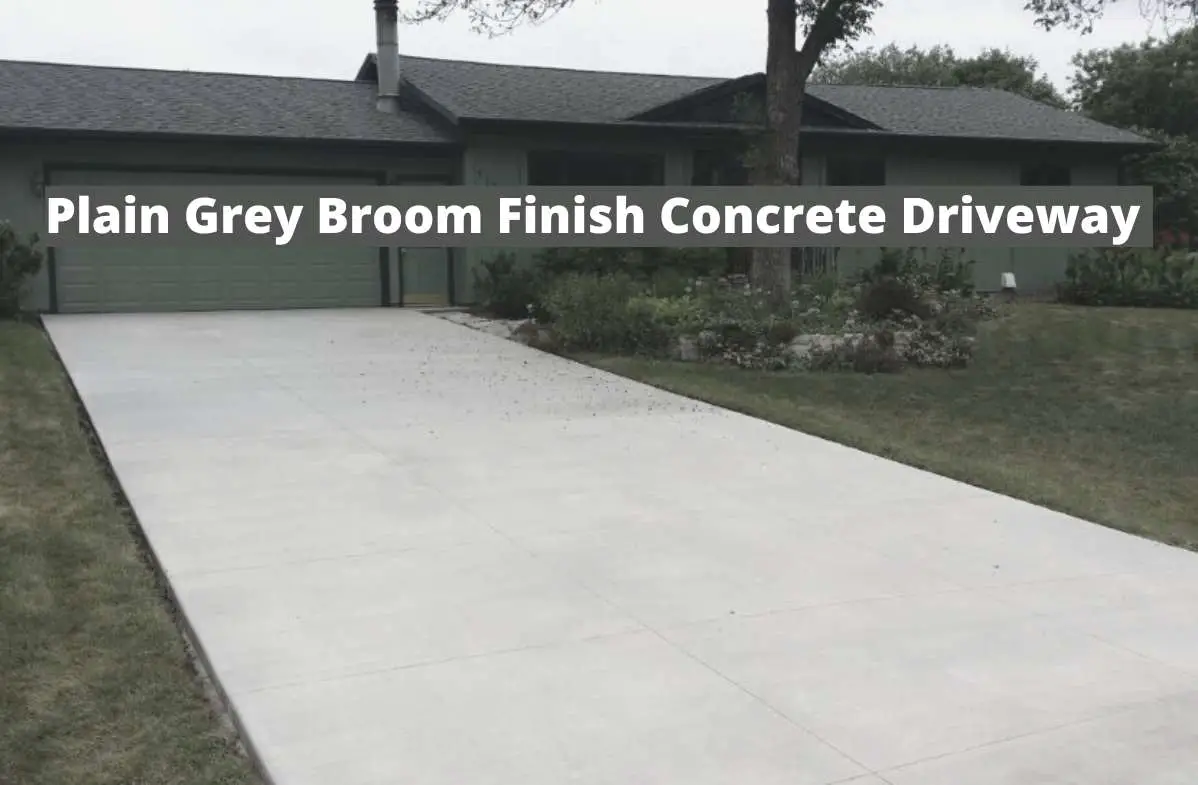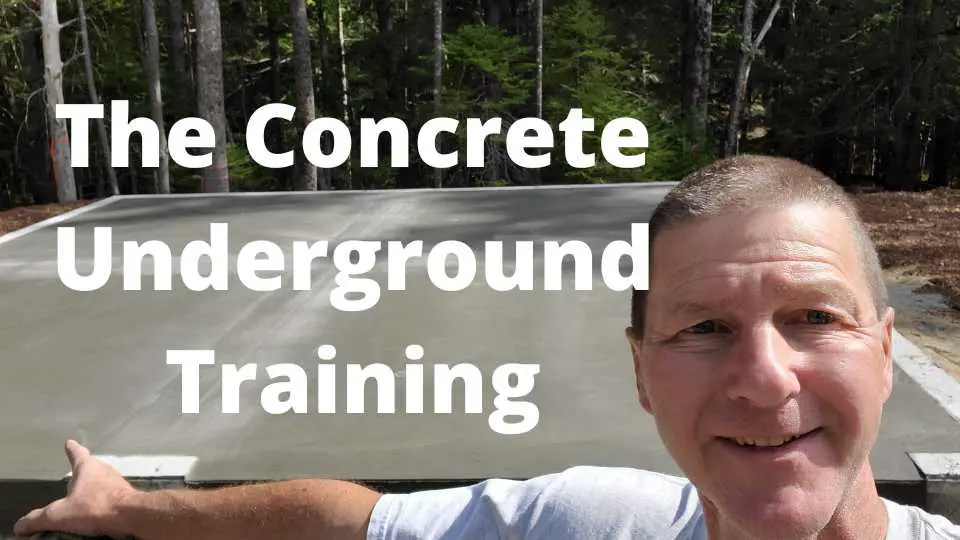why you should seal your concrete floor
Sealing your concrete floor is always a good idea to insure it is protected and stays looking brand new for longer.
Above are two videos from my YouTube channel that will go into more depth on why and how to seal your concrete floor and my suggestions for the best concrete sealers to use for all floors.
What is the best concrete sealer to use?
There are two concrete sealers I have used throughout my career and have found to work the best:
|
Foundation Armor AR 350 Sealer Why I feel Foundation Armor's AR 350 sealer is one of the best concrete sealer for my jobs is because it out performs most other acrylic concrete sealers I've used in the past. If applied correctly, it doesn't whiten or blister, it doesn't peel or flake off, it's very easy to apply right out of the pail, it doesn't fade or turn a yellow color in the sun, and it protects the concrete from freeze / thaw, salt damage, water damage, oil spills (if wiped up quickly) and normal wear and tear. It's one of the best all around performing concrete sealers for concrete floors, garage floors, brick pavers, concrete driveways, walkways, patios, even ware house floors. Foundation Armor Ar 350 also comes in 14 different colors as well as clear. You could use it to seal your garage floor in a nice gray, red, or tan color just to name a few. |
|
RadonSeal Standard Concrete Sealer RadonSeal's Deep Penetrating Concrete Sealer is also one of my favorites. This concrete sealer penetrates down into the concrete approximately 2", reacts internally with the concrete, and permanently seals it, blocking out water from being absorbed and eventually causing spalling, cracking or deterioration. I use RadonSeal on my concrete pool decks, my concrete driveways, concrete patios, sidewalks, and walkways. It's very easy to apply. RadonSeal works great on concrete in freeze / thaw areas because it doesn't allow water to penetrate, freeze, and pop the surface unlike a lot of other types of sealers. If you're looking for one of the best concrete sealers (in my opinion) for your concrete pool deck, concrete driveway, patio, walkway, or sidewalk, this is a sealer you should consider getting. |
Worried about your concrete sealer being slippery?
|
You can add Foundation Armor's Fine Non-Slip Additive for slip resistance |
supplies needed for sealing a concrete floor
- Foundation Armor AR 350 Sealer
- RadonSeal Standard Concrete Sealer
- Foundation Armor's Fine Non-Slip Additive
- Stainless Steel Sprayer
- Leaf Blower (for exterior concrete clean up before applying sealer)
Here is a before vs. after sealing a concrete floor- it makes a huge difference!
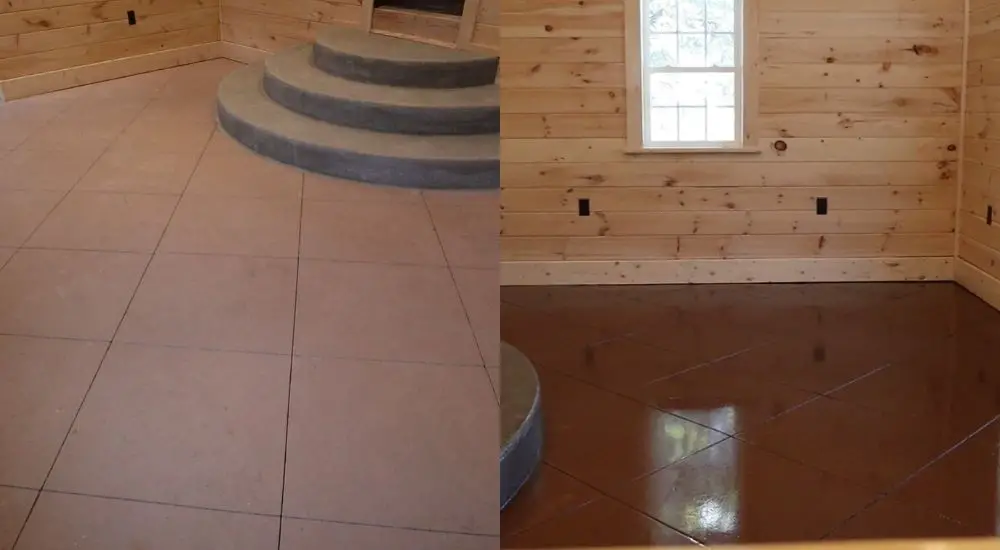
How often will you have to seal your concrete floor?
You should re-apply sealer to your concrete floor about every 2-3 years to make sure it is protected and stays looking good.
How much will sealing your concrete floor cost?
For acrylic and penetrating sealers only:
If you seal your concrete floor by yourself, which can be done, it will roughly cost around 50 cents a square foot because you are only paying for the materials needed.
If you hire someone to seal your concrete floor, it will roughly cost $1.00 to $1.50 a square foot because you are also paying for their labor and time.
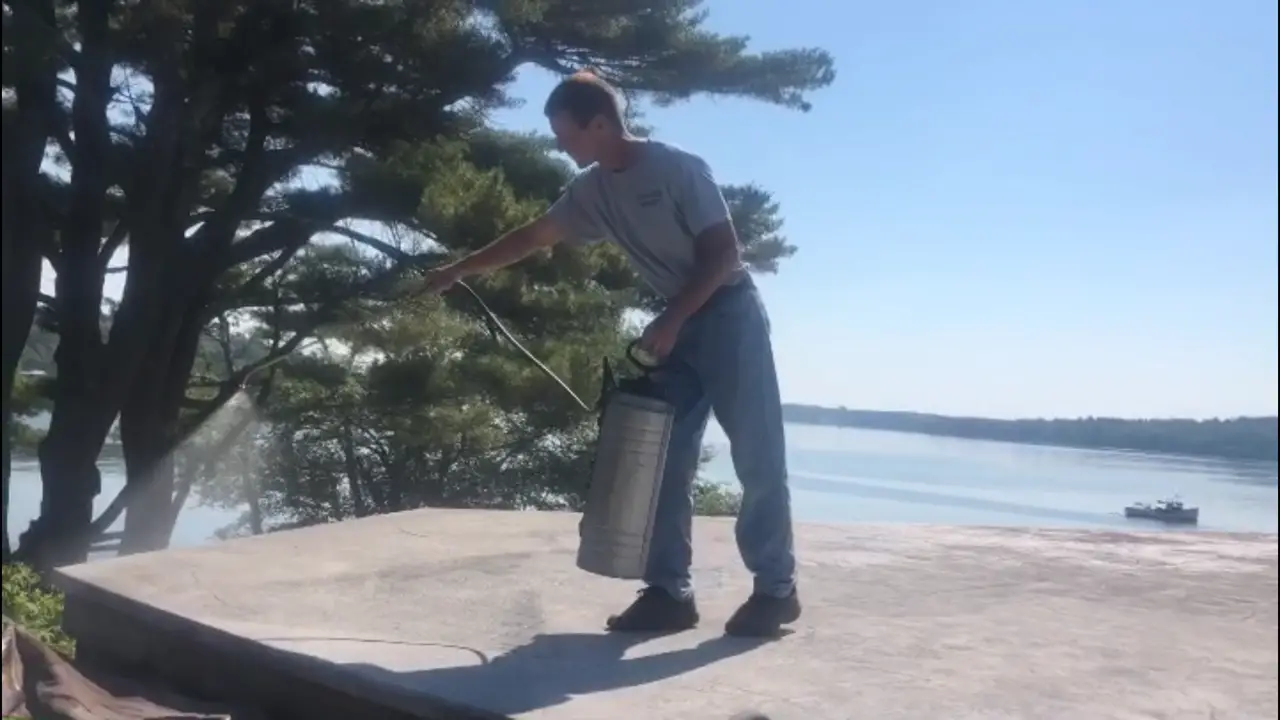
Pros of sealing your concrete floor
Concrete left unsealed is very porous. There are millions of tiny capillaries within the concrete substrate.
These pores allow water, water vapor, and even radon gas to pass right through it. As concrete ages these pores get larger and allow more moisture and radon to pass through.
As water seeps into concrete it will activate the alkali in the concrete and literally eat itself up from the inside. This process will produce a white powder called efflorescence.
If you wipe your hand over the surface and a chalky powder is left on it, the floor needs to be sealed. In time, if left untreated, this will destroy the concrete floor.
When water enters your home it increases the humidity and allows mold and mildew to grow. That's why your basement feels damp and cool, there's a lot of moisture down there.
A penetrating concrete floor sealer will be your best bet to protect and maintain your concrete floor.
These concrete sealers penetrate deep into the concrete's pores coming into contact with the alkali and calcium ions, forming a gel.
This gel expands filling the pores and hairline cracks inside the concrete, turning the concrete into a solid mass. This process will prevent moisture and vapor migration up through the concrete floor.
When you buy a penetrating sealer it should be water based and say silicate penetrating solution on the specifications. You can use a pump up sprayer to apply it with.
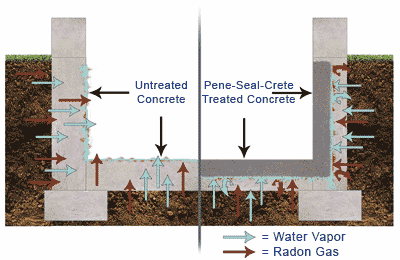
Here are some other things to think about when sealing your concrete floor
Do you want a matte finish or a glossy look to your floor?
Do you want a tinted sealer or a clear sealer?
Do you need a sealer that is chemical resistant?
Will there be a high volume of foot traffic?
How clean does the concrete surface have to be before sealing?
What will deicing salts do to a concrete sealer?
Do I apply sealer with a roller or a sprayer?
To find the answers to these questions click on CONCRETE SEALER for more sealer information.
For more information on concrete floor related topics click on the links below.
What is CONCRETE FLOOR STAIN?
A how to guide for PAINTING A CONCRETE FLOOR.
What do I need to know about PAINTING CONCRETE FLOORS?
Return from Concrete Floor Sealer to Concrete Floors
Return from Concrete Floor to Everything About Concrete Home Page
